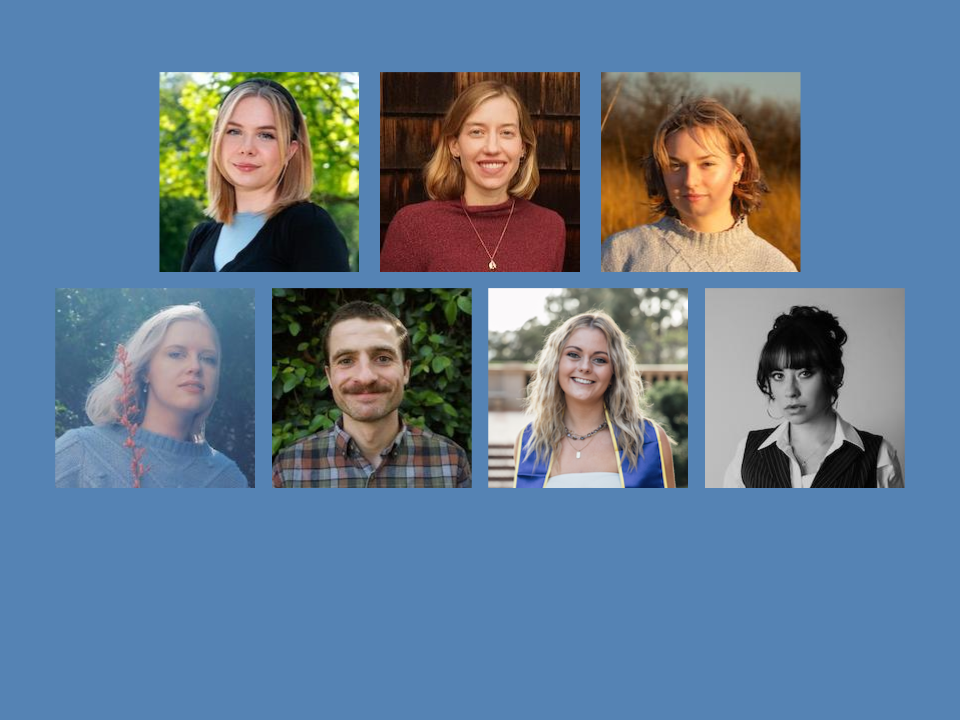
CASW selects 2024-25 Taylor/Blakeslee Fellows
Seven talented writers pursuing careers in science journalism have been awarded prestigious Taylor/Blakeslee University Fellowships for the 2024-25 academic year from the Council for the Advancement of Science Writing. Each will receive a $6,000 academic year award to support graduate training in science writing, thanks to funding from The Brinson Foundation.
As part of a 2023 expansion of the Taylor/Blakeslee program, one of the fellows, Jenna Ahart, will receive an enhanced fellowship intended to support writing that covers the physical sciences. Along with the $6,000 award, Ahart will receive travel funds and mentoring by Natalie Wolchover, a Pulitzer Prize-winning physics journalist and senior editor at Quanta magazine.
These fellows, selected from a competitive field of outstanding applicants, bring to 197 the total number of science writers aided by CASW’s graduate fellowships since 1981.
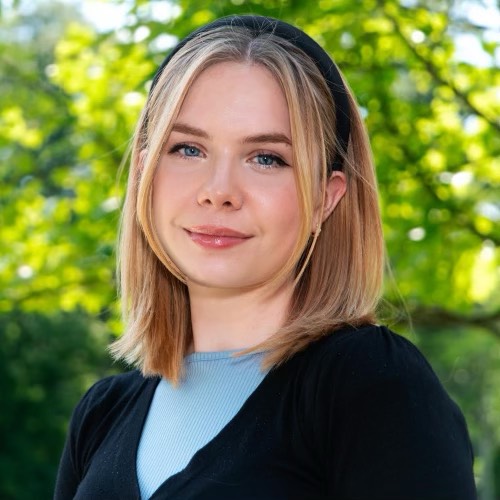 Jenna Ahart is a 2024 graduate from George Washington University, where she studied journalism and astrophysics. This fall, she will attend the University of California Santa Cruz science communication master’s program. Through the program’s Astrobiology Fellowship, she’ll work with the directors of UCSC’s Astrobiology Initiative and the science communication program to cover ongoing research on life beyond Earth. Jenna has written for institutions including NASA’s Goddard Space Flight Center, where she covered high-energy astrophysics discoveries, as well as an aviation engineering firm and her university’s research program.
Jenna Ahart is a 2024 graduate from George Washington University, where she studied journalism and astrophysics. This fall, she will attend the University of California Santa Cruz science communication master’s program. Through the program’s Astrobiology Fellowship, she’ll work with the directors of UCSC’s Astrobiology Initiative and the science communication program to cover ongoing research on life beyond Earth. Jenna has written for institutions including NASA’s Goddard Space Flight Center, where she covered high-energy astrophysics discoveries, as well as an aviation engineering firm and her university’s research program.
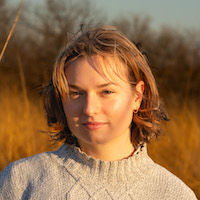 Anika Jane Beamer is a Midwesterner and a writer with a background in the biological sciences. She has spent the last two years as the science writer for Grinnell College in Grinnell, Iowa, covering fields as far-flung as robotics, galaxy formation, water geochemistry, and lung cancer. As a scientist turned writer in America’s agricultural heartland, she believes that good science writing has the power to unravel powerful misconceptions about who science is and isn’t for. “It is critical that we frame science in a way that is relevant and empathetic,” she writes. Anika Jane will be joining the science writing program at MIT this fall, where she’s interested in reporting on how human changes to the environment and atmosphere are transforming the milieux of microscopic life for better and for worse.
Anika Jane Beamer is a Midwesterner and a writer with a background in the biological sciences. She has spent the last two years as the science writer for Grinnell College in Grinnell, Iowa, covering fields as far-flung as robotics, galaxy formation, water geochemistry, and lung cancer. As a scientist turned writer in America’s agricultural heartland, she believes that good science writing has the power to unravel powerful misconceptions about who science is and isn’t for. “It is critical that we frame science in a way that is relevant and empathetic,” she writes. Anika Jane will be joining the science writing program at MIT this fall, where she’s interested in reporting on how human changes to the environment and atmosphere are transforming the milieux of microscopic life for better and for worse.
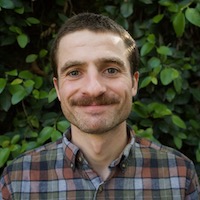 Collin Blinder will attend the UC Santa Cruz science communication master’s program in the fall. As a freelance journalist in Southern California, he covers the science beat for the Pasadena Star-News. During the COVID-19 pandemic, while working as a data analyst in the nonprofit and government-adjacent sector, Collin took remote journalism classes at UCLA Extension, eventually freelancing for his local paper. Having been acutely aware of neurodiversity from a young age, Collin saw how test scores didn’t reflect a person’s passion for learning. As a communicator, he strives to break down complex topics into accessible explanations. At UC Santa Cruz, Collin plans to seek out new storytelling techniques to better convey perplexing concepts to anyone interested in science. He received a bachelor’s degree in psychology from Pitzer College.
Collin Blinder will attend the UC Santa Cruz science communication master’s program in the fall. As a freelance journalist in Southern California, he covers the science beat for the Pasadena Star-News. During the COVID-19 pandemic, while working as a data analyst in the nonprofit and government-adjacent sector, Collin took remote journalism classes at UCLA Extension, eventually freelancing for his local paper. Having been acutely aware of neurodiversity from a young age, Collin saw how test scores didn’t reflect a person’s passion for learning. As a communicator, he strives to break down complex topics into accessible explanations. At UC Santa Cruz, Collin plans to seek out new storytelling techniques to better convey perplexing concepts to anyone interested in science. He received a bachelor’s degree in psychology from Pitzer College.
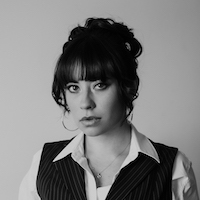 Jessica Chomik-Morales is a researcher and outreach strategist at MIT’s Department of Brain and Cognitive Sciences and will begin the science writing master’s program there this fall. As the daughter of immigrant parents from Paraguay, she is fiercely proud of her heritage and uses her position as a bilingual scientist to bridge the gap between a predominantly English-speaking academic world and the Spanish-speaking layperson. She hosts and produces a neuroscience podcast in Spanish, “Mi Última Neurona,” with the purpose of igniting curiosity, sparking conversations, and empowering her community. Last year, for the third season of the MIT-supported show, she embarked on a journey across seven countries in Latin America to interview 33 neuroscientists in 37 days. “I’ve witnessed the disparity first-hand,” Jessica writes. Jessica is excited to expand her communication abilities across modalities and is committed to serving the Spanish-speaking community.
Jessica Chomik-Morales is a researcher and outreach strategist at MIT’s Department of Brain and Cognitive Sciences and will begin the science writing master’s program there this fall. As the daughter of immigrant parents from Paraguay, she is fiercely proud of her heritage and uses her position as a bilingual scientist to bridge the gap between a predominantly English-speaking academic world and the Spanish-speaking layperson. She hosts and produces a neuroscience podcast in Spanish, “Mi Última Neurona,” with the purpose of igniting curiosity, sparking conversations, and empowering her community. Last year, for the third season of the MIT-supported show, she embarked on a journey across seven countries in Latin America to interview 33 neuroscientists in 37 days. “I’ve witnessed the disparity first-hand,” Jessica writes. Jessica is excited to expand her communication abilities across modalities and is committed to serving the Spanish-speaking community.
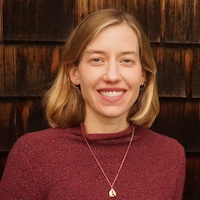 Anna FitzGerald Guth will attend the UC Santa Cruz science communication master’s program this fall. She is a freelance contributor to Civil Eats, a daily news source for critical thought about the American food system, and the communications manager for West Marin Fund, a community foundation based in coastal Marin County, California. She is particularly interested in reporting on the intersection between agriculture and climate change in California.
Anna FitzGerald Guth will attend the UC Santa Cruz science communication master’s program this fall. She is a freelance contributor to Civil Eats, a daily news source for critical thought about the American food system, and the communications manager for West Marin Fund, a community foundation based in coastal Marin County, California. She is particularly interested in reporting on the intersection between agriculture and climate change in California.
Guth was previously a staff reporter and editor for the Point Reyes Light. She has extensively covered the conflict between environmentalists and the cattle ranchers who operate in Point Reyes—a longstanding legal battle intensifying amid the climate crisis. “I have committed to pursuing environmental journalism as a way of shining a light on power inequities,” she writes. She earned bachelor’s degrees in English and environmental studies from Wesleyan University.
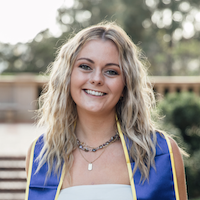
Lina Savage graduated from UCLA in 2022 with a degree in environmental science and a minor in atmospheric and oceanic sciences. Since then, she has been working for an environmental consulting firm for plaintiff litigation in Santa Monica. She always planned to combine her love for science with what she really wanted to do: write. She believes the main issue with the climate crisis today is miscommunication. “Some are deniers for the malicious incentive of profit, but most are not,” she writes. “They just haven’t found the right words yet.” She is attending NYU’s Science, Health, and Environmental Reporting Program (SHERP) this fall in hopes of learning how to find the right words.
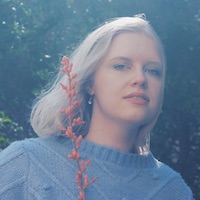 Lauren Schneider will enter NYU’s SHERP this fall to study health journalism. She is currently the marketing communications coordinator for the clinical practices at the University of Texas at Austin Dell Medical School. As she transitions from marketing communications to journalism, she especially looks forward to covering advances in neuroscience. After years of experience in neurology and psychology research, she was inspired to become a journalist to address the gap she observed between public interest in the brain and accessible in-depth reporting on it. “In my experience as a science communicator, readers are naturally interested in the brain because of its intimate role in every aspect of human life,” she writes. Schneider earned her bachelor’s degree in neuroscience from UT Austin.
Lauren Schneider will enter NYU’s SHERP this fall to study health journalism. She is currently the marketing communications coordinator for the clinical practices at the University of Texas at Austin Dell Medical School. As she transitions from marketing communications to journalism, she especially looks forward to covering advances in neuroscience. After years of experience in neurology and psychology research, she was inspired to become a journalist to address the gap she observed between public interest in the brain and accessible in-depth reporting on it. “In my experience as a science communicator, readers are naturally interested in the brain because of its intimate role in every aspect of human life,” she writes. Schneider earned her bachelor’s degree in neuroscience from UT Austin.
Update January 2025
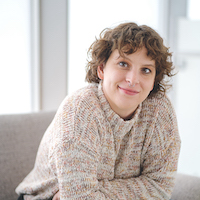 Annie Bennett has been awarded a half-year scholarship for the 2025 spring semester. Bennett is a first-year graduate student at New York University in the Podcasting and Audio Reportage program. She became passionate about science communication while working for the National Park Service. Before that, they graduated from Emerson College with a bachelor’s degree in journalism and minors in social justice and comedic arts. She hopes to become an audio reporter covering climate policy. Bennett loves their dog Ivy, coffee with caramel, and Taylor Swift.
Annie Bennett has been awarded a half-year scholarship for the 2025 spring semester. Bennett is a first-year graduate student at New York University in the Podcasting and Audio Reportage program. She became passionate about science communication while working for the National Park Service. Before that, they graduated from Emerson College with a bachelor’s degree in journalism and minors in social justice and comedic arts. She hopes to become an audio reporter covering climate policy. Bennett loves their dog Ivy, coffee with caramel, and Taylor Swift.